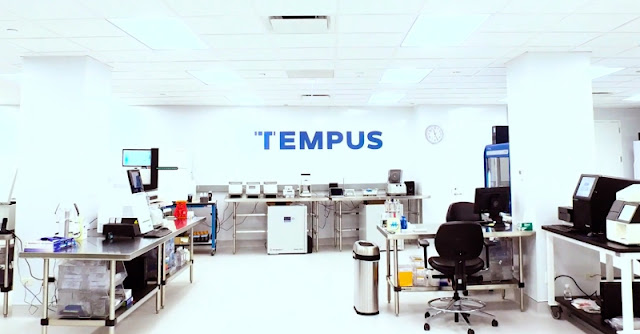490
As per estimates of American Society of Clinical Oncology, 14 million people worldwide will learn that they have cancer this year and 9 million will lose their lives. Their estimates for the year 2030 are even worse and present an alarming situation for cancer patients and their families. We have been hearing about personalized medicine for many years now but the last year or so, there have been some great advances that have made their way from research labs to real world clinics and with regulatory approvals. Here is a look at some recent advances in cancer treatments.
Traditional cancer treatment use the chemotherapy approach that
bombards the body with cytotoxic drugs and has a 50-50 chance of killing
normal as well as cancerous cells.As treatments improved, we moved to drugs that inhibit the growth of cancerous cells, typically the Tyrosine Kinase Inhibitors (TKIs). As our understanding of cancer has improved, the approach has changed from trying to find a cure to leveraging our own immune system to fight cancerous cells.
bombards the body with cytotoxic drugs and has a 50-50 chance of killing
normal as well as cancerous cells.As treatments improved, we moved to drugs that inhibit the growth of cancerous cells, typically the Tyrosine Kinase Inhibitors (TKIs). As our understanding of cancer has improved, the approach has changed from trying to find a cure to leveraging our own immune system to fight cancerous cells.
Immunotherapy
The promise of T-cell mediated immunotherapy, where one’s own T-cells could be reprogrammed to fight cancer cells has now to fruition. In the past year, the Food and Drug Administration (FDA), approved not one but two T Cell immunotherapy treatments, one for B-cell Lymphoma (Kymriah) and the other for Acute Lymphoblastic Leukemia (Yescarta) that use this approach for fighting cancer.
 |
|||||
| Process flowchart for generating modified T Cells and using them for treatment in cancer patients. Image credit: www.dmm.biologists.org |
Check Point Inhibitors
T cells occupy a very important place in our immune system and protect us against a large number of harming agents such as viruses, bacteria and even cancerous cells. It is now known that certain cancers inhibit the ability of T cells from recognizing cancerous cells and are able to move around in the body without being detected.
T cells use PD-1 protein as a checkpoint to ascertain whether a cell should be attacked or not. If the cell being checked has a PD-L1 protein then the cell is safe. Cancer cells of the lung, kidney, neck, skin and bladder use this PD-L1 protein to safeguard themselves. By using a check point inhibitors, one can block the PD-L1 protein on cancerous cells and help T-cells recognize them for what they really are!
In the past year, the FDA has approved use of Avelumab (Bavencio) and Durvalumab (Imfinzi) for treatment of Merkel Cell carcinoma and Urothelial carcinoma respectively. Other, PD1 inhibitors such as Pembrolizumab (Keytruda) and Nivolumab (Opdivo) that have already been approved by the FDA have found new approvals for new cancers such as primary mediastinal large B-cell Lymphoma (PMBCL) and renal cell carcinoma respectively.
A large number of cancer drugs go through their R&D pipeline but fail to show desired effects in patients during their clinical trials. A few decades earlier, one would have simply deserted these drugs forever, but with the increasing availability of sequencing technology at reduced prices, one can now relate genetic variations in patients with the medication outcomes.
Digging deeper, scientists have also found that select mutations in tumor tissue can make a medication work better or worse, giving rise to a large number of companion diagnostic tests that can help clinicians and patients determine which drug can have better outcomes.
Foundation One CDx
Many labs have developed their own companion diagnostic tests, often in partnership with pharma companies that manufacture the drugs. The FDA has approved some of these tests, while others are still under the process of validating their tests. Foundation Medicine, a Massachusetts based company, has now obtained FDA approval for their broad range companion diagnostic test, called Foundation One CDx.
Using Next-Gen Sequencing, the test seeks mutations as well as copy number variations in 324 genes in the tumour tissue and reports any actionable mutations for non-small cell lung cancer, melanoma, breast, ovarian and colorectal. Reports are available in just 2 weeks and costs covered by Medicare in the US.
Advancements and findings in cancer research often take a lot of time to reach publication houses from where they can be accessed and put into practice by physicians and clinicians. Updates to existing clinical practices also meet the same fate and any advantages or disadvantages of using a treatment method for a particular patient must reach the physician immediately. This requires real time data sharing between oncologists and clinicians around the globe.
Data Driven Decision Making
Clinical reports for cancer patients are often fragmented with each report to be analysed by a specialist in his or her field and making decisions that affect medical outcomes.Gathering all relevant clinical data of patients and making a comprehensive report is the need of the hour in cancer care.
Chicago based Tempus, processes lab reports, clinical notes, radiology scans as well as pathology reports to truly understand the clinical context of the case. It then produces a comprehensive report with not only specific treatment options for the patient but also details of clinical trial matches, candidacy for immunotherapy treatments and supports its recommendations with patient data obtained in real-time and matched by tumor types and genetic profiles.
Combined together, cancer treatments have entered the era of precision personalized medicine and it is now the time to raise awareness about treatment options available to one and all.
References:




